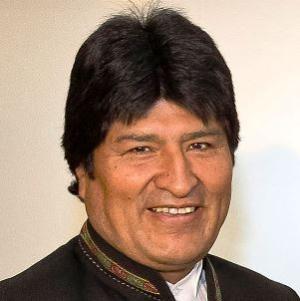A restrictive South Dakota medical marijuana bill is killed, a Florida Senate resolution designating Mexican cartels as foreign terrorist organizations advances, and more.

South Dakota Bill to Restrict Medical Marijuana Recommendations Killed. The Senate Health and Human Services Committee voted 5-2 Wednesday to kill a bill that would have required patients to get medical marijuana cards only from their primary care provider or through a referral from that provider, Senate Bill 82.
The vote came after Cannabis Industry Association of South Dakota spokesman Jeremiah Murphy warned lawmakers that 30 percent of Americans did not even have a primary care provider.
Seven other bills that seek to amend the state's voter-approved medical marijuana system remain alive in the legislature, including bills to hike the price of a dispensary license, allow police to search dispensaries and force prescribers to notify a patient's primary care provider about their receipt of a card.
Drug Policy
House Bill Aims to Crack Down on "Gas Station Heroin." Reps. Jimmy Panetta (D-CA) and August Pfluger (R-TX) on Thursday announced bipartisan legislation that aims to crack down on the abuse and distribution of tianeptine, commonly referred to as "gas station heroin," amid heightened concerns about the abuse of the unregulated drug.
The cutely named Scheduling Tianeptine and Analogues Now to Defend (STAND) Against Emerging Opioids Act would move the currently unscheduled drug tianeptine to Schedule III of the Controlled Substances Act, making it illegal to sell without a prescription.
"By scheduling tianeptine under the Controlled Substances Act, the bipartisan STAND Against Emerging Opioids Act will help prevent the prevalence and abuse of this unregulated drug. As the opioid crisis continues to evolve, the federal government needs to actively monitor these types of emerging drugs as threats to our public health and safety," Panetta said.
Placing tianeptine under Schedule III is "a crucial step to getting this addictive drug out of convenience stores and gas stations."
The text of the bill is not yet available on the congressional web site.
Psychedelics
Arizona Bill to Extend Psilocybin Study Advances. The House Military Affairs and Public Safety Committee voted 11-3 Monday to extend the deadline on the state's nation-leading program to study the medicinal uses of psilocybin. The measure is House Bill 2105.
The program is currently scheduled to end on June 30, but the bill would extend it through July 1, 2026.
The proposed studies would research the use of whole magic mushrooms, as opposed to its psychedelic chemical component, psilocybin. Supporters say the extension is necessary because it will take a lot of time to win federal approval for Schedule I testing.
Foreign Policy
Florida Senate Committee Approves Resolution Calling on US to Designate Mexican Drug Cartels as Terrorist Organizations. A Senate resolution calling on the US to designate Mexican drug trafficking organizations as foreign terrorist organizations, Senate Memorial1020, has passed out its final committee and is now headed for a Senate floor vote.
The legislation from Sen. Blaise Ingoglia (R-Spring Hill) was approved by the Senate Rules Committee after earlier winning approval from the Senate Military and Veterans Affairs, Space, and Domestic Security Committee.
The nation is faced with "escalating threats posed by drug cartels," and the United States finds itself at a "critical juncture" where bold measures must be taken to protect national security, Ingoglia said during debate.
"Drug cartels have claimed responsibility for the armed abduction and killing of Americans unapologetically," Ingoglia said. "The cartels have been responsible for the smuggling, sexual exploitation, and abuse of men, women and children."
There is no companion legislation in the House.
International
Bolivia Coca Growers Block Roads over Evo Morales Election Disqualification. For the third day in a row, coca growers blocked highways to demand the resignation of judges who disqualified former President Evo Morales from running for office next year. Morales, a former coca grower union leader, ruled the country from his election in 2006 until he was overthrown in a coup/popular uprising in 2019.
Coca farmers blocked traffic in the departments of Cochabamba, Oruro, Potosi, and La Paz, using stones, logs, and burning tires to impede traffic. Bolivian authorities reported blockades at 16 locations.
Morales fled Bolivia after being deposed but returned when fellow Movement to Socialism (MAS) member Luis Arce won the presidency the following year. Last month, the country's Constitutional Court reversed a ruling that allowed Morales to seek a fourth term, which disqualified from running in 2025.
The coca growers are not happy. "This is going to grow. It is just beginning and other regions and other points will join," said Humberto Claros, a local leader of coca growers.
This work by StoptheDrugWar.org is licensed under Creative Commons Attribution-ShareAlike 4.0 International
Add new comment